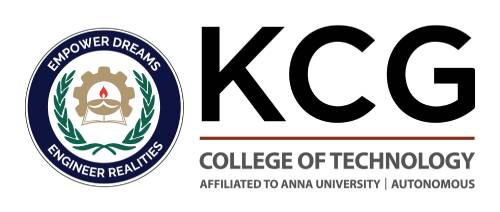Talking Human: The Rise of Natural Language Processing (NLP)
In today’s fast-paced world where emerging technologies are re-imagining industries, Natural Language Processing (NLP) has emerged as a game-changer. Natural Language Processing is a branch of artificial intelligence that focuses on the interaction between computers and human language. It involves a wide range of techniques, including text analysis, machine translation, sentiment analysis, chatbots, and more. By processing vast amounts of textual data, NLP enables computers to comprehend, interpret, and generate human-like language.
With its ability to understand and analyze human language, NLP is transforming the way we interact with technology. The future of NLP holds tremendous potential for growth and advancement, with the global NLP market projected to reach approximately $49.4 billion by 2027, growing at a compound annual growth rate (CAGR) of around 25.7% according to a report by MarketsandMarkets. Revolutionary tools like ChatGPT and DALL-E 2 are setting new standards for the capabilities of NLP, with a booming consumer base around the world. According to the latest available data, ChatGPT currently has over 100 million users, and the website currently generates 1.8 billion visitors per month. Voice assistants and chatbots powered by NLP have already gained significant popularity globally, with around 44% of global internet users already using voice-activated assistants by the end of 2020. The use of chatbots for customer service and support is also on the rise, with the global chatbot market projected to grow at a CAGR of over 29% from 2021 to 2026, as per a report by Grand View Research.
The demand for NLP systems that can process multiple languages is on the rise. Future advancements will focus on developing robust multilingual models that can accurately understand and generate content in various languages. Additionally, cross-lingual capabilities will enable seamless translation and communication between different languages, fostering global collaboration and knowledge sharing.
Various industries are adopting NLP technologies to gain insights from textual data and improve customer experiences. NLP is being widely used in sectors such as healthcare, finance, e-commerce, customer support, social media analytics, and more. The adoption of NLP in these industries is driven by the need for automation, data-driven decision-making, and enhanced user engagement. NLP has also emerged as a powerful tool with a wide range of applications in the field of engineering. With its ability to understand and analyze human language, NLP is revolutionizing the way engineers interact with technology and data with various applications:
1. Technical Documentation Analysis: NLP can automate the extraction of information from technical documents, research papers, and patents. Engineers can quickly retrieve relevant data, saving time and enhancing their decision-making process.
2. Sentiment Analysis: NLP algorithms can analyze customer feedback and sentiment in product reviews, social media posts, and surveys. Engineers can gain valuable insights into user experiences, identify areas for improvement, and make data-driven design decisions.
3. Chatbots and Virtual Assistants: NLP-powered chatbots and virtual assistants improve customer support and engagement. Engineers can develop chatbots to answer frequently asked technical questions, provide troubleshooting assistance, and offer personalized recommendations.
4. Voice Recognition and Control Systems: NLP enables engineers to develop voice-controlled systems for hands-free operation in industrial environments. Voice commands can be used to control machinery, perform safety checks, and access information, enhancing efficiency and productivity.
5. Natural Language Interfaces for Data Analysis: NLP interfaces make it easier for engineers to interact with complex engineering data. They can query databases, perform data exploration, and generate reports using natural language commands, reducing the need for specialized programming skills.
6. Machine Translation: NLP facilitates the translation of technical documentation and research papers across different languages. This enables global collaboration and knowledge sharing among engineers working on international projects.
7. Intelligent Tutoring Systems: NLP can be used in engineering education to develop intelligent tutoring systems. These systems provide personalized guidance, feedback, and recommendations to students, fostering a more interactive and effective learning experience.
8. Deeper Integration with Voice Assistants: Voice-enabled technologies have gained significant popularity, with voice assistants like Siri, Alexa, and Google Assistant becoming household names. Engineers can deploy NLP in enhancing these voice assistants’ capabilities by improving speech recognition accuracy, understanding user intent more effectively, and enabling natural and dynamic conversations.
The rise of Natural Language Processing has revolutionized the engineering landscape, empowering engineers to extract valuable insights, enhance communication, and transform industries. KCG College of Technology college encourages interdisciplinary collaborations, fostering innovation and creativity in NLP applications across various engineering domains by integrating NLP into the curricula of related engineering programs. Through hands-on projects and research opportunities, our students develop the skills necessary to harness the power of NLP in solving real-world engineering challenges.
References:








